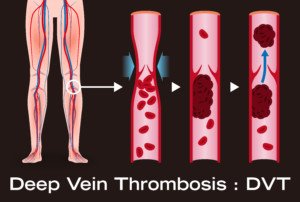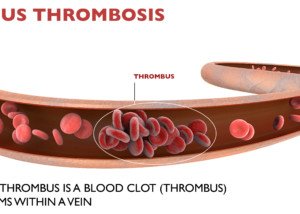A vascular surgeon is asked if chronic stress can actually trigger a deep vein thrombosis.
“There is no real objective data on an association of chronic stress and DVT risk that I am aware of,” says Paul Lucas, MD, surgeon with the Vascular Center and director of the Vascular Laboratory at Mercy Hospital in Baltimore.
However, Dr. Lucas says this: “Chronic stress can lead to elevation in blood pressure. This can result in damage to vessels leading to a setup for atherosclerosis, plaque buildup … and lead to heart attacks and strokes.”
Ongoing anxiety, persistently being “wound up” and “stressed out,” puts the body in a fight or flee mode.
To prepare for what the body thinks is an imminent fight or escape from danger, various physiological changes take place, including thickening of the blood to protect against bleeding to death. This proved handy for primitive man.
For modern man, this protective response can backfire; chronically thickened blood (chronic stress from job, finances, traffic jams, etc.) is more prone to clotting up.

Shutterstock/metamorworks
Chronic stress can lead to behaviors that put a person at high risk of a DVT.
-Overeating leading to obesity
-Excessive inertia
-Lack of structured exercise
-Smoking




























